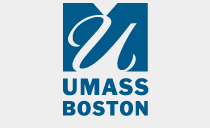2015 Theme Statement
Mass History Conference
Chew on This: Presenting the History of Food in Massachusetts
College of the Holy Cross, Worcester, June 1, 2015
Filmmaker Ian Cheney, creator of The Search for General Tso (2014) and co-founder of Food Corps will give the keynote for the eleventh annual Massachusetts History Conference. You are what you eat. Or are you? From the first Thanksgiving, food has been a subject of negotiation among the diverse people who live in Massachusetts. Cultural identity was and is often most readily expressed in the food prepared and eaten in local and community settings. Yet, growing, harvesting, and processing food for distant markets has been a source of livelihood since the first dried cod was shipped to the West Indies. Increasingly choices about food and eating were shaped by the rise of cities, factories, and complex patterns of production and distribution. Today, while the Commonwealth is seeing a flowering of sustainable local farming and fishing initiatives–often inspired by historical practices and focused on providing access to food for all–the need for food assistance is on the rise, and food assistance often relies on multiply-processed foods that differ greatly from the simply preserved beans and hams that fed earlier generations during the more difficult times of the year.
The 2015 Massachusetts History Conference’s thematic focus will be on food in public history. This annual conference aims to share excellence in public history across the Commonwealth as well as to enhance our understanding of Massachusetts history. Offerings include hands-on workshops and panel discussions that demonstrate ways to enhance organizational and programming development. We are planning workshops on such topics as: doing food demonstrations; conducting oral histories that focus on food; and using public history in reinventing the food system. The conference will also include sessions on New England food 101; archives with cookbook and other food-related collections; the history of and current strategies for feeding the hungry in Massachusetts cities and towns; multicultural food ways and local practices; Native American food practices; Food safety, home economics and other twentieth-century food movements; and preserving agricultural landscapes. Finally, there will be plenty of opportunities for networking and sharing during breakfast and lunch.
